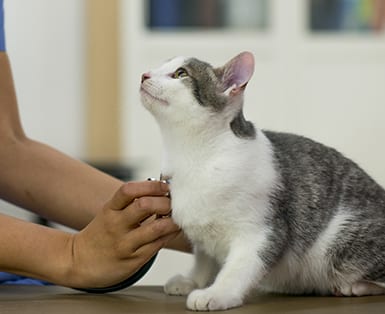Veterinary Internal Medicine

Dogs and cats can develop ongoing health issues due to age, genetics, or other factors. Regardless, our Orlando, Oviedo and Maitland veterinarians understand the frustration you might be feeling in this situation and are prepared to help in any way we can. With constant support and a personal approach to veterinary internal medicine, we can diagnose your pet and explore different treatment options.
Addressing Your Pet’s Condition
If your pet is diagnosed with a chronic disease, you probably have a lot of questions about what to do next. Whichever of our veterinarians you choose, you can expect compassion, clear communication, and ongoing education to help you understand your pet’s condition.
We also partner with specialists to perform advanced diagnostics (ultrasound, echocardiogram, surgery, etc.) in-hospital so you're less likely to need a referral, though we can arrange a referral if necessary. We also explain all possible treatment options to help you make the best decision.

Keeping your pet well doesn't have to be hard (or expensive). Sign up for our VIP Program!
How Our VIP Program Helps
The thought of having to cover your pet’s medical costs can be overwhelming, but our VIP Program can alleviate that concern. Since pets with chronic issues need to see their veterinarian more often, they need a plan that can reduce the costs of repeat visits.
The VIP Program allows for unlimited office visits to any of our four locations throughout the year. This increases the communication you have with your veterinarian and allows for better evaluation of your pet. If you have further questions about how the VIP Program works, contact any of our locations to learn more.

What Chronic Conditions are Most Common in Pets?
Dogs and cats can suffer from chronic diseases such as:
- Diabetes
- Congestive heart failure
- Kidney disease
- Arthritis
- Addison’s disease
- Cushing’s disease
- Hypothyroidism/hyperthyroidism
These conditions often start with symptoms like decreased appetite, lethargy, weight loss, lower energy, and an overall change in behavior. Any unusual changes that persist beyond 24 hours should be addressed by your veterinarian in case a more serious problem is taking place.
